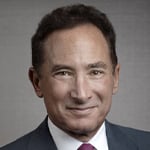According to these new instructions, unlicensed operators (who were subject to the cooling-off period) will gradually cease offering services to Dutch consumers.
The cooling-off period was previously decided to ensure unlicensed operators would refrain from “actively targeting” the Dutch market for a period of up to 33 months before they would become eligible to apply for a Dutch remote licence.
The motion was developed into an officially published policy and it only prohibited the “active” targeting of Dutch consumers; passive offers (such as games not offered on a .nl website, in the Dutch language) would not provide the regulator grounds to deny a remote licence to an applicant.
The aim of this policy rule was to make it harder for passive operators to acquire new customers from the Netherlands and to ensure all existing customers could continue playing with an operator that would eventually obtain a Dutch licence.
The new directive explicitly changed the rule regarding passive operators; therefore, passive gambling offers which were deemed acceptable are not anymore. Minister Dekker claims passive operators can apply for a licence; however, they are not automatically protected against enforcement measures and sanctions.
Operators currently subject to the cooling-off period will be given a limited time (an exact period of time is not mentioned) to cease all operations in the Netherlands, allowing existing customers to withdraw funds and switch to licensed alternatives. This new policy will seriously limit the competition faced by the Netherlands-licensed online operators.





































